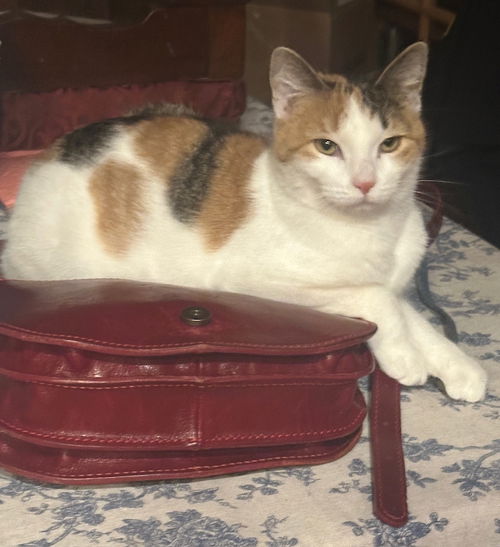 The status of Poppet was
last posted on 02/06/25 by
The status of Poppet was
last posted on 02/06/25 by

Did someone say catnip?!


Female Cat, Calico
Calico / Domestic Short Hair / Mixed (Short Coat)
Description:
Poppet has really come out of her shell-click here to see video. She is still cautious but asks for pets and plays with us humans now. She is such a cutie and is a tiny bit chatty. She is quite funny and does little meows to get your attention. She is totally a night owl and spends her time investigating everything in the house. She tries to cuddle with my cats, so a playmate would be probably be very helpful for her. She still doesn’t like to be picked up, but will let you pick her up for a couple seconds before she wants to get down. She does like to be petted and will expose her belly for rubs. She’s just unsure and needs some experience in the world. She is such a cutie and worth the investment! Poppet is a Stray Surrender from Nowthen, MN. If you are interested in getting to know this animal better, please fill out an adoption application. An adoption application is the best way to show your interest in an animal and is not a binding contract. To learn more about Ruff Start’s adoption process and the care our foster animals receive, please visit our How to Adopt page. If you are unable to adopt but want to help this animal and others in our care, you can donate to support the medical and veterinary needs of all Ruff Start Rescue animals. Want to adopt a kitten? We highly recommend you consider bringing home two instead of one! Adopting kittens in pairs has been proven to be beneficial for cats’ emotional and behavioral well-being and greatly improves the likelihood of long-term adopter happiness as a result. Adopting more than one kitten also reduces the risk of “Single Kitten Syndrome” (also known as Tarzan Syndrome), a symptom of under-socialization during a kitten’s most formative weeks. Kittens who are under-socialized may develop aggressive tendencies toward both other animals and humans as they grow, creating lifelong behavioral issues for owners.

